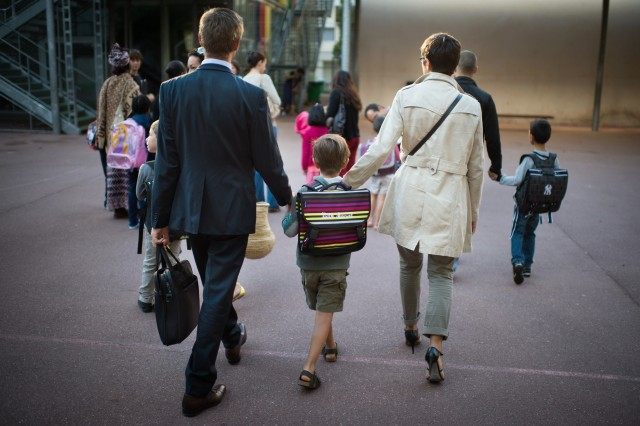Both men and women become less supportive of liberal feminist ideals about family life, housework and childcare after actually having children, a new study has revealed. Men, in particular, became more traditional in their approach to a broader range of family values. Or, as the authors put it, they experience “sexist shifts” towards more conservative “views on gender roles”.
The study was conducted by Australian social scientist Janeen Baxter and was published today on the Children and Family blog. In it, 1,800 new parents were read a series of statements about motherhood, the division of housework, and childcare. These were rated between one to seven, where one signified strong agreement and seven indicated strong disagreement.
Both men and women showed less support for the idea that housework and care of children should be shared equally if both partners work, for example, after they had children. The mean level of disagreement with this notion increased from 1.6 to 1.8 for women, and went from 2.1 to 2.3 for men.
The questions pertained to personal preference and attitudes, but the authors saw the results as evidence that “our society is not providing a full range of opportunities and choices for either men or women in the field of parenting.”
“Socially constructed” forces imposed people’s attitudes upon them, they said.
However, another recent report covered by Breitbart London showed that young women are three times more likely to agree with the statement a “woman’s place is the home,” than those over the age of 30.
There is in fact much evidence to support the idea of an increasingly conservative population, and many common sense explanations as to why people would revert towards traditional family values when they have children and spouse they wish to care for.
Biology, too, may play a part. Maternal / paternal instincts induced by hormones released during the child rearing process are often characterized as “socially conservative,” rather than merely natural, by the liberal-left.
The social scientists who conducted the study disagree, of course: “I am disinclined to support a biological explanation, because such sexist shifts do not occur in some, particularly non-Western, societies, where care of young children is more equally shared, not just between men and women but across communities,” Baxter told The Independent.
“It seems more likely that the way we organise work, parental leave arrangements, schools and social networks create structural barriers to involved fatherhood and also encourage the traditional social construction of women’s mothering role.
“Whether you are male or female, you have to be very confident and persistent against overwhelming odds not to conform amid such powerful messaging.”

COMMENTS
Please let us know if you're having issues with commenting.